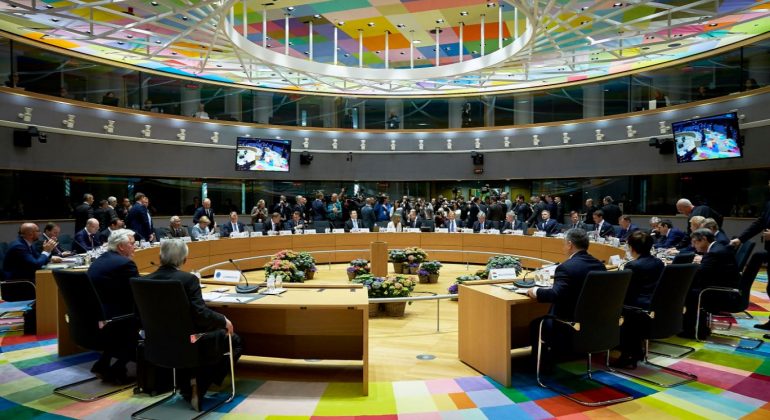EU to accelerate digital transformation, 5G after COVID-19
- April 8, 2020
- William Payne

An influential EU working party is pressing for the EU to respond to the COVID-19 crisis by actively embracing greater digital transformation and 5G throughout European society, institutions and industry. The working party conclusions are likely to galvanise the adoption of smart city, e-government, e-health and industrial internet throughout Europe, and could ensure that every EU country completes 5G auctions by the end of 2020, despite moves by member states to postpone their auctions to 2021 as a response to the health crisis. The working party recommendations carry particular weight because they come from the European Council, the most influential, if least publicly prominent, part of the tri-partite structure of EU Government.
The European Council Working Party for Telecoms is recommending that each EU member state, and the European Commission, must “thoroughly analyse the experiences gained from the COVID-19 pandemic”. This should inform all future policies affecting technology right across the policy spectrum at both EU institution and member state levels.
The working party highlights “e-Health, digital education, e-Government, data sharing and broadband connectivity” as areas that should receive particular focus in the aftermath of the COVID-19 crisis.
The Council working party also urges that the European Commission and member states take steps to ensure that 5G auctions are completed in 2020. This is despite some member states, including France, Spain, Austria and Portugal, moving to postpone their 5G auctions as a result of the COVID-19 impact on society and government institutions.
Various bodies and companies have been looking at how to use data from smartphones to track people and their behaviours in the fight against COVID-19. One group has launched the Pan-European Privacy-Preserving Proximity Tracing (PEPP-PT) project. This analyses bluetooth handshakes registered between smartphone users as they come into bluetooth range of each other. The project is taking bluetooth proximity as a proxy for breaking social distance, which is being urged to reduce COVID-19 infection rates.
Such developments have sparked concerns among privacy advocates, particularly in the European Parliament, where MEPs have urged the Commission to take action. Thierry Breton, the EU’s Internal Market Commissioner, has informed MEPs that the Commission is monitoring the privacy situation in the use of smartphones and SIMs.
The working party has also recommended that EU companies should be incentivised to begin development and build-out of next-generation 6G technology and networks. 6G capabilities have already been highlighted in the EU’s current industrial strategy.
The document, entitled ‘Council of the EU Conclusions on Shaping Europe’s Digital Future’, also calls on the European Commission to revisit and review previous work on establishing an EU-wide digital identity.
The Presidency of the European Union, currently held by Croatia, will discuss the draft conclusions, dated April 1, at the next meeting of heads of governments, which is scheduled for May. The Presidency then plans to move the conclusions to be adopted by the European Union Transport, Telecommunications and Energy (TTE) Council when it meets in Luxembourg in June.
The Council is one of the three institutions of the European Union Government, together with the European Commission and the European Parliament. It comprises the member governments of the European Union, whereas the Commission performs as the Executive arm, and the Parliament as the representative body. Less publicly visible than the other two, the Council is the most powerful of the three, and the final arbiter of EU policy.




